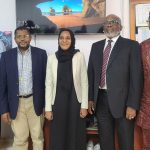Engineer Backs Tinubu’s Nigeria-First Procurement Policy
…Says It Will Drive Industrialization and Economic Growth
By Patience Ikpeme
A member of the Nigerian Society of Engineers (NSE), Ambassador Engineer Abdullahi Hashim, has commended President Bola Ahmed Tinubu for approving the Renewed Hope Nigeria-First Procurement Policy, describing it as a strategic move to reposition Nigeria’s economy through local content prioritization.
In a statement issued in Abuja on Tuesday, Hashim described the policy as a “bold and strategic initiative” that places Nigerian talent and innovation at the center of national development. He noted that the directive represents a turning point for industrialization, job creation, and economic self-reliance.
“I commend Mr. President’s courageous leadership in implementing the Renewed Hope–Nigeria First Procurement Policy,” Hashim said. “It is a palpable initiative that will indelibly shape our nation’s economic trajectory.” He noted that giving preference to locally-made products would stimulate domestic production, reduce import dependency, and boost national income.
The new policy mandates all Ministries, Departments, and Agencies (MDAs) of the federal government to prioritize local content in procurement processes. Foreign alternatives will only be permitted where no viable local options exist, and even then, only through a waiver to be approved by the Bureau of Public Procurement (BPP).
Hashim believes the policy will play a vital role in creating jobs, strengthening technical competence, and encouraging innovation. “This visionary policy will have far-reaching impacts on economic empowerment,” he said, while also noting that the policy sends a strong signal of support to Nigerian entrepreneurs and investors.
Minister of Information, Mohammed Idris, echoed similar sentiments, describing the initiative as a significant policy shift comparable to the United States’ “America First” strategy. According to him, the goal is to redirect public procurement toward indigenous capabilities and foster a business environment that is “bold, confident, and very Nigerian.”
He explained that through this policy, the government intends to ensure that public investments deliver real benefits to local industries and citizens by rebuilding economic structures from within.
To enforce compliance, MDAs are now required to audit and revise their procurement plans to reflect the new directive. Violations will attract sanctions including the cancellation of non-compliant contracts and disciplinary actions. Additionally, procurement officers across MDAs will now fall under the supervision of the BPP to minimize malpractice and ensure full adherence.
Citing Nigeria’s sugar industry as an example, Idris lamented the underutilization of local capacity despite the existence of institutions like the Nigerian Sugar Council. He noted that large volumes of sugar are still imported when local production could meet demand, a situation the new policy intends to correct.
Engineer Hashim further noted that the policy aligns with sustainable development goals and would contribute to reducing Nigeria’s carbon footprint. “Mr. President’s efforts on this policy will guarantee sustainable development in our dealings because the policy aligns with global best practices,” he stated.
He also pointed out that in cases where foreign procurement is unavoidable, the policy ensures that such engagements come with conditions that promote technology transfer and skills development, allowing Nigeria to derive long-term value.
Hashim called on all stakeholders—including the private sector, regulatory bodies, and government institutions—to work together to ensure the policy’s successful implementation. “We celebrate your commitment to nation-building and look forward to the transformative impact of this policy on our economy and society,” he said.
The Renewed Hope Nigeria-First Procurement Policy is set to gain further legal backing as President Tinubu has directed the Attorney General to prepare an Executive Order to give the policy the force of law. It is expected to serve as a cornerstone of the administration’s economic strategy, focusing on industrialization, import substitution, and sustainable national growth.




